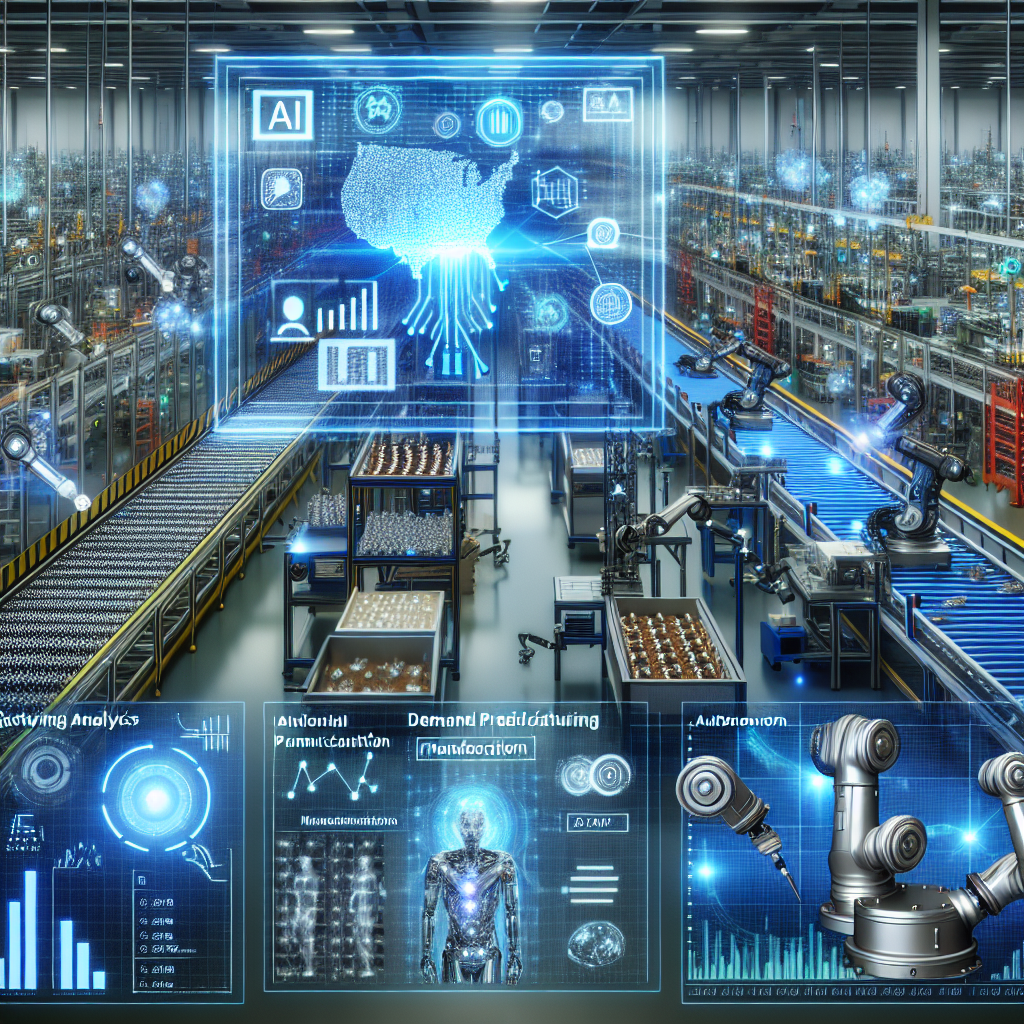Demand-driven manufacturing is a strategy that focuses on producing goods based on customer demand rather than forecasted sales. This approach helps companies reduce inventory costs, improve customer satisfaction, and increase flexibility in their production processes. In recent years, the role of artificial intelligence (AI) in demand-driven manufacturing has become increasingly important. AI technologies such as machine learning, predictive analytics, and robotics are revolutionizing the way manufacturers operate, allowing them to better respond to changing market conditions and customer needs.
AI in demand-driven manufacturing can help companies optimize their production processes by analyzing vast amounts of data in real-time to identify trends and patterns that can inform decision-making. For example, AI can help manufacturers predict demand fluctuations, identify potential bottlenecks in the production process, and optimize inventory levels to meet customer demand more efficiently. By using AI-powered tools, manufacturers can make more informed decisions, reduce waste, and improve overall operational efficiency.
One of the key benefits of AI in demand-driven manufacturing is its ability to enhance supply chain visibility. By integrating AI technologies into their production systems, manufacturers can track and monitor every aspect of the supply chain in real-time, from raw material sourcing to product delivery. This level of visibility allows manufacturers to identify potential risks and opportunities, optimize logistics, and improve collaboration with suppliers and partners. As a result, companies can better manage their inventory, reduce lead times, and respond quickly to changes in customer demand.
Another important role of AI in demand-driven manufacturing is its ability to enable predictive maintenance. By using AI-powered predictive analytics tools, manufacturers can monitor the condition of their equipment in real-time and predict when maintenance is needed before a breakdown occurs. This proactive approach to maintenance can help companies reduce downtime, improve equipment reliability, and extend the lifespan of their assets. By leveraging AI technologies, manufacturers can optimize their maintenance schedules, reduce costs, and ensure that production processes run smoothly and efficiently.
AI also plays a crucial role in enabling agile manufacturing processes. By using AI-powered robotics and automation technologies, manufacturers can increase the flexibility of their production lines and respond quickly to changes in customer demand. For example, AI-powered robots can be programmed to perform a variety of tasks, allowing manufacturers to quickly reconfigure their production lines to accommodate new products or changes in production volume. This level of flexibility can help companies adapt to market trends, reduce time-to-market, and stay ahead of the competition.
Overall, the role of AI in demand-driven manufacturing is to help companies become more responsive, efficient, and customer-focused. By leveraging AI technologies, manufacturers can optimize their production processes, improve supply chain visibility, enable predictive maintenance, and enhance agility in their operations. As the manufacturing industry continues to evolve, AI will play an increasingly important role in driving innovation and transforming the way companies produce and deliver goods to market.
FAQs:
Q: How can AI help manufacturers predict customer demand?
A: AI technologies such as machine learning and predictive analytics can analyze historical sales data, market trends, and other relevant information to forecast customer demand more accurately. By using AI-powered tools, manufacturers can identify patterns and trends that can help them anticipate changes in customer preferences and adjust their production processes accordingly.
Q: What are the benefits of AI in demand-driven manufacturing?
A: Some of the key benefits of AI in demand-driven manufacturing include improved production efficiency, reduced inventory costs, enhanced supply chain visibility, predictive maintenance, and increased agility in responding to changes in customer demand. AI technologies can help manufacturers optimize their operations, reduce waste, and improve overall business performance.
Q: How can AI enable agile manufacturing processes?
A: By using AI-powered robotics and automation technologies, manufacturers can increase the flexibility of their production lines and respond quickly to changes in customer demand. AI-powered robots can be programmed to perform a variety of tasks, allowing companies to quickly reconfigure their production lines to accommodate new products or changes in production volume.
Q: What role does AI play in supply chain visibility?
A: AI technologies can help manufacturers track and monitor every aspect of the supply chain in real-time, from raw material sourcing to product delivery. By analyzing vast amounts of data, AI can identify potential risks and opportunities, optimize logistics, and improve collaboration with suppliers and partners. This level of visibility enables companies to make more informed decisions and respond quickly to changes in customer demand.

